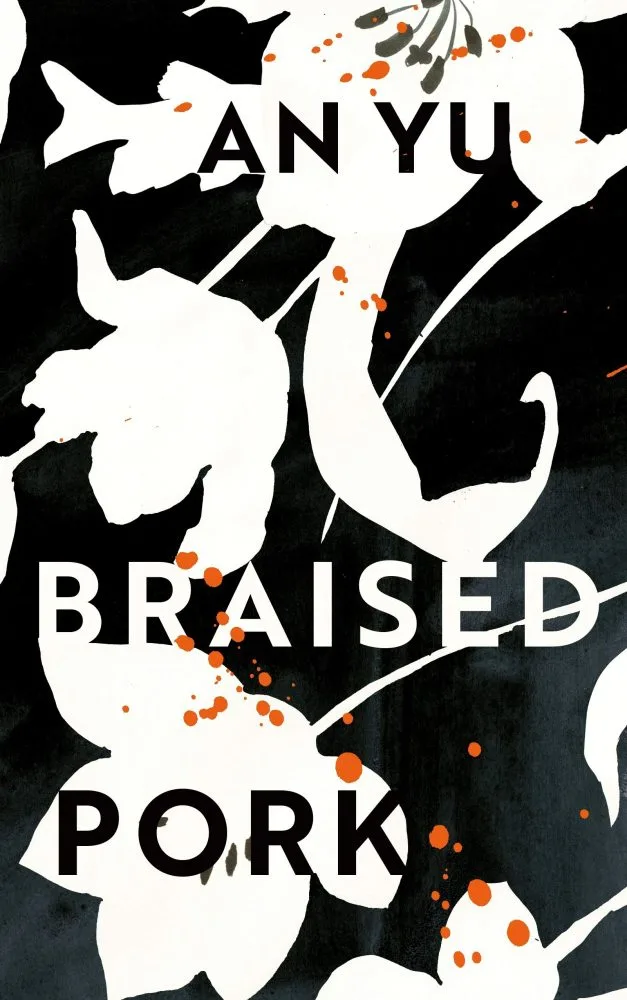Braised Pork is an unusual kind of debut. It’s a novel that’s been finely tuned, elegantly crafted, lovingly polished to a mirror sheen, and yet ultimately comes off feeling a little flat, never reaching the narrative or philosophical heights it hinted at from page one.
As a work of literary craftsmanship, it’s a fantastic book that exists as evidence of An Yu’s ability to tell a sharp, focussed tale. But despite it being a book about heart and soul and love, it’s in this area that it sadly falls a little short.

Set in the modern Beijing that An Yu herself was raised in, Braised Pork follows the journey of a woman widowed tragically young. As the novel opens, Jia Jia finds her husband, Chen Hang, dead – face down and arse up – in the bathtub. Chen Hang was a wealthy southerner who, in his will, left Jia Jia his Beijing apartment and a modest sum of cash. Now, not yet out of her twenties, newly widowed Jia Jia must grapple with her newfound loneliness.
Is it loneliness, though, or is it freedom? That’s the first question which Braised Pork poses. It’s an interesting question, to be sure. A loss is a tragedy, but can’t it also be something to take advantage of?
This angle can seem like a cold one, but it’s also something to be explored, and any character who considers it should be a captivating one. Unfortunately, Jia Jia remains, from page one to page two hundred, a wooden and immovable protagonist. The questions raised by her actions and choices are intriguing ones, and they certainly carry the plot, but Jia Jia herself does not.
After finding her husband dead, Jia Jia begins to reach out to her father; she also becomes intimate with a local barman, Leo – a man who knew Jia Jia’s late husband. Leo is kind but this kindness has a hollowness to it. Jia Jia appreciates the freshness of his love and attention, but the moment when we really feel this the most is in her description of their sex – in how new and exciting it feels. All other aspects of their blossoming relationship are left unexplored.
The main thread of Braised Pork’s plot follows a strange and somewhat unsettling image: a drawing done by Jia Jia’s late husband and left behind after he dies. The image depicts a monstrous man with the body of a fish.
Knowing that Chen Hang travelled to Tibet before dying, Jia Jia hopes that the answers to the niggling question of what the hell this drawing is connected to can be found there. And so, while the first half of the novel follows Jia Jia around the bars, alleys, and apartments of Beijing, its second half carries her off to Tibet, to retrace her late husband’s footsteps in search of a fish-man.
It was during this change of scenery that Braised Pork triggered an itch of familiarity. More and more the book took the shape of something recognisably Murakami. Disconnected, aloof characters; descriptive sexual encounters; a lot of time spent at bars and in discussion about music; a journey to a far-flung place in search of something strange and possibly supernatural. The Murakami bingo sheet is slowly getting filled in.
To be clear, this in itself is certainly no bad thing. While Murakami is a problematic author in more ways than one, he has a style that is hugely irresistible. And if your novel can fit into that style while also still feeling wholly yours – something original yet tastefully inspired – that is a remarkable victory.
And, of course, perhaps it is only me recognising the familiar tropes in Braised Pork, and it was never An Yu’s intention to draw parallels to Murakami’s work. Whatever the case, it is pulled off well in Braised Pork. The book’s shift from gritty streets and family drama to the enigmatic mountains of Tibet is done expertly.
Unfortunately, the trail that Jia Jia follows feels directionless. We understand why she is there on a surface level, and even on a deeper level, but it still feels hard to believe. And this is because of the book’s issue with characterisation. Despite Jia Jia’s actions, her agency is consistently left in doubt. Why she does what she does is either left unclear or, at best, never anything entirely believable.
A criticism often levelled against authors is that, if their characters are unlikeable, their novel fails. This is utter nonsense. Unlikeable characters do not a bad book make. Directionless, poorly defined characters like Jia Jia, however, are far more frustrating to follow and invest time and emotional energy in.
This goes beyond Jia Jia and extends to Leo, to Jia Jia’s father, to Ren Qi – a man she meets in Tibet who is desperately wandering in search of his disappeared wife (another Murakami trope) – and even to Chen Hang. Despite never having any direct connection to him, it should be easy to get a sense of what kind of man and husband he was by how Jia Jia reacts to his death, but this is never solidified and made clear.
Read More: Our most anticipated translated books of 2020
In the shift from autumn to winter, Jia Jia leaves her thoughts of Chen Hang behind as she becomes infatuated by Leo. This paints an image of a husband who was not loving and is not worth mourning.
Yet her journey to Tibet metaphorically speaks to her desperate need for closure; a deep urge to understand her late husband. The pieces of Jia Jia never seem to come together to create one whole protagonist that we can truly understand. There’s a syntax error in her character.
In a novel with this much scope and ambition, the locations often morph into characters in their own right – characters with a pulse, a rhythm, a heart at their core – but the two settings of Beijing and Tibet here desperately lack description. An Yu is a rather minimalist writer and, while this does work in her favour because it keeps a laser focus throughout the plot, it does leave the settings empty and lifeless.
Conclusion
It’s frustrating, to say the least, to reach into Braised Pork and pull it apart in this way. It’s also difficult, given how well An Yu has stitched the novel together. Braised Pork is a novel that can be thoroughly enjoyed as a punchy, enigmatic tale that leans into the surreal just enough as to excite and thrill its readers.
Sadly, however, it suffers from a lack of clear characterisation and motivation. After completing it and putting it down, I found myself asking the question: what was all of this for, exactly?
